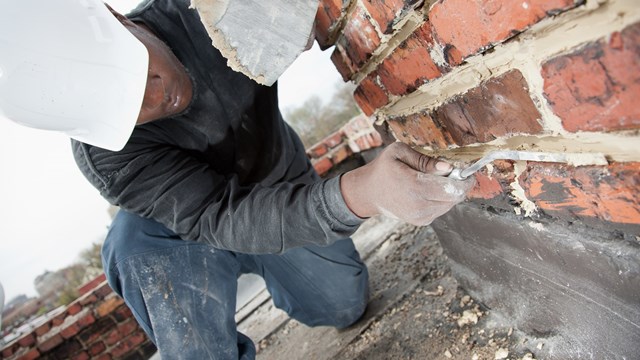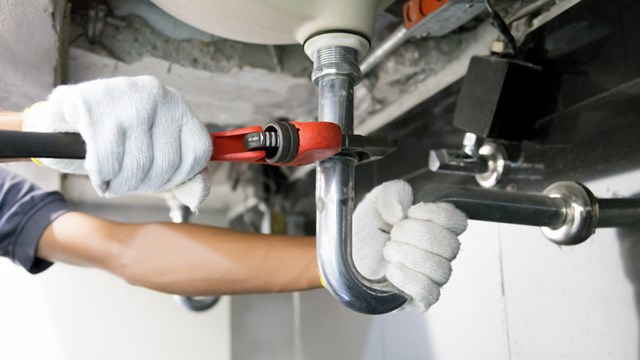Warranties for products are simple to understand, most people might think. You go to the store, buy a computer or a DVD player or a TV, or even a larger appliance like a refrigerator, and you get a piece of paper describing a one-year or two-year warranty, and what’s covered. Sometimes, for some extra money, you can get an extended warranty for another year or so.
But what if the item in question is not a personal appliance, but a huge building component that you’re purchasing in large numbers from a contractor? What if you’re purchasing, for your co-op or condo, a roof tank, pumps, a new roof, a new series of convectors for a central HVAC system, or mechanical parts for an elevator?
Surely, the technology in items like these is more complex than your laptop. Also, in addition to the manufacturer, there is usually now a third party—the contractor. Still, a warranty must be given. How do warranties work for such large items, and what do you, as a co-op or condo board member, committee member or manager, need to know?
Gregg Wallick, president of Best Roofing Inc. in Fort Lauderdale, says one difference between the warranties on small, personal items like the aforementioned laptop versus much bigger components like a roof is maintenance requirements. “So many people confuse their roof warranty with their insurance policy. People get a leak and they think ‘I have a warranty, let me make a call,’” he says. “Every roof warranty that is written by every manufacturer is going to have certain maintenance requirements that need to take place. Especially when you are dealing with a flat roof of a commercial nature, in many of those cases they usually use the roof as a depository for mechanical equipment like exhaust fans, air conditioners, skylights, bathroom fans. All of those things require maintenance and in the process of that maintenance sometimes the roof gets compromised. So whoever is issuing the warranty will require the owner to do inspections and maintenance and that doesn’t happen with smaller items.”
Wallick also stresses the importance of reading the fine print on warranties for large components because if maintenance requirements aren’t met the warranty could be considered null and void.
Installers and Manufacturers
How do the manufacturers’ warranties fit with installers’ coverage of their work when it comes to these types of items? It often depends on what type of item you’re talking about, and what manufacturer is involved.
“Every elevator manufacturer is different, but the way it works with us is that if it’s an existing elevator that we maintain and service we don’t deal with the contractor at all,” says Andrew Grabin, a sales representative for Mowrey Elevators in Davie. “The only time we deal with contractors is on construction of new buildings or modernization of new elevators, meaning you are ripping out an old elevator and installing a brand new one. Let’s say the building is completed, it’s given a certificate of occupancy and the tenants move in. After we install the elevator is when we turn the building over to the contractor and the contractor usually has an agreement with the developer and they discuss how long the building is going to be warrantied. But we maintain the elevator and if there is a problem with maintenance the board or property manager will deal directly with us.”
For a roof, which covers a much bigger surface area and has no moving parts (although it does have stationary parts, such as flashing, perimeters, drains and insulation materials), the story is different.
“Normally in roofing when you are working with a manufacturer who is going to give extended warranties they will pre-qualify you as an authorized applicator,” says Wallick. “That means they have screened you and that you understand their plan and how they want the product installed. Usually you’ll go through training and then you become an authorized applicator. Usually the manufacturer’s warranty is for a longer period than the contractors’ warranty. The contractors’ warranty primarily revolves around workmanship and the manufacturer’s warranty will deal with workmanship and the materials.
According to Maxine Lopez, vice president of Airstron, a Fort Lauderdale-based company that sells and installs heating, ventilation and air conditioning systems, manufacturers typically offer a one-year warranty. “Within that one period of time if the person who bought the equipment with us has a problem we’ll go out and take a look,” she says. “We’ll troubleshoot the problem and report back to the owner and take care of it. We are unique in the sense that we are the manufacturer and we install the product.”
Can one purchase extended warranties on building components? Yes, they can, but they seem less popular than they do in the consumer electronics field.
“Extended warranties are to a great extent used by a lot of manufacturers as marketing material to induce you to use their product and very rarely do we see somebody actually reading what that warranty is,” says Wallick. “I always tell my clients ‘up at the top of the warranty the big print giveth but down at the bottom the small print taketh away.’ You have to read your warranty to see what is included. Just because it says it’s a 10, 15 or 20-year warranty that doesn’t mean if your roof leaks you are going to get your roof fixed for free.”
Wallick also says that many common stipulations in roof warranties include provisions such as a hurricane, an Act of God, misuse and vandalism.
“On smaller components I don’t think extended warranties are worth it,” says Lopez. “On larger components there is usually a five or 10-year warranty on HVAC systems. We don’t offer extended warranties.”
“An extended warranty on a roof is worth it if you have an institutional grade piece of property that you are possibly going to sell because it means a lot to have a roof warranty that can go with the sale of the property,” adds Wallick. “But if you are the type of person who is going to hold on to that property for a long time and not sell it I would forgo the cost of the warranty. If you want a warranty that’s going to cover labor and materials, manufacturers charge us—based on the complexity and size of the building—a warranty fee.”
Negotiating With Boards and Managers
Unlike, say, when you buy a DVD player, buying a new chiller or convector system is a huge responsibility, and several people have to examine the particulars and then sign off on it.
“We usually discuss warranties and maintenance contracts with property managers or whoever is overseeing the day-to-day business of the building,” says Grabin. “When a new building is turned over from a contractor, the property manager will step in so we deal directly with them. After a building is turned over the contractor has nothing to do with it. It’s between us and the property manager or the board if they are self-managed.”
Often, the contractor negotiates with the manager, and then the board approves the manager’s recommendation. On other occasions, however, the contractor negotiates with the board as well as the manager.
“We have account managers who handle different buildings, who will take care of warranty issues,” says Lopez, “Sometimes they will deal with the board of directors or the property manager. It’s a case-by-case basis.”
Clearly, every building or building complex is different. Some boards are very hands-on, while others leave everything to the manager. In some buildings, an engineer or architect hired by the co-op or condo also takes part in the business-making process.
There are even some boards that have members who are in the construction trade, and in these cases, contractors feel comfortable talking about warranties and other matters with those people.
Parts and Labor?
Finally, do most companies that manufacture building components and the contractors and dealers who sell them, offer parts-and-labor warranties, or only warranties on parts?
Grabin says that most warranties from manufacturers and installers include both parts and labor.
Clearly, contractor- and dealer-offered warranties for major building components are a complicated subject. Thankfully, you as a condo board member have many resources to rely on—the experience of board members and managers of other developments, members of your own board who might be architects, engineers or construction professionals, co-op and condo trade organizations, and, of course, your manager.
Raanan Geberer is a freelance writer and a frequent contributor to The South Florida Cooperator. Staff Writer Christy Smith-Sloman contributed to this article.







Leave a Comment